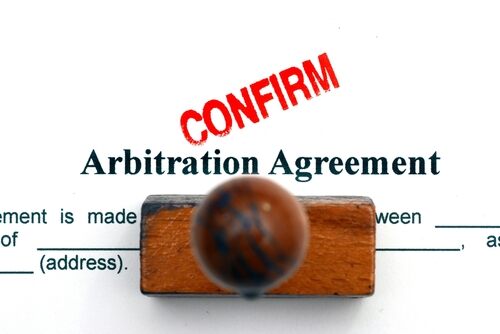A Nursing Home Arbitration Agreement May Put Your Loved One’s Rights at Risk
When a beloved family member is a victim of nursing home abuse or neglect, family members want to hold nursing homes accountable. But when they bring their grievances to light, the nursing home presents them with an arbitration agreement for the victim to sign. What are families to do?
On the surface, nursing home arbitration appears to be a mutually beneficial alternative to traditional litigation; nursing homes contend it is a less expensive and faster road to resolution for all involved. While it is true that arbitration matters are considerably less costly to litigate, it is also true that, by moving matters to arbitration, nursing homes mitigate the risk of big payouts that come when juries award big verdicts. For this reason, nursing homes and long-term care facilities often make signing arbitration agreements mandatory. Many nursing home residents and their families don’t realize that signing a nursing home arbitration agreement means assenting to its terms: the resident is forever barred from bringing his or her case to court. Signing an arbitration agreement is in effect signing away one’s constitutional right to a jury trial.
“While there can be practical reasons why a resident may ultimately agree to arbitrate a matter, it should never be agreed to at time of admission or at any time before the incident or injury occurs. Also, it should only be agreed to after consultation with an attorney.” –Brian P. Murphy
Here are a few sobering truths about nursing home arbitration and arbitration agreements:
- Arbitration agreements often limit discoverable information, meaning important documents and key fact witnesses necessary to proving the case may be precluded.
- Arbitration agreements may limit the types of damages a plaintiff can seek, which can significantly reduce the amount a plaintiff can recover.
- With arbitration agreements, nursing homes gain leverage in negotiating case settlements and will often offer less money to resolve the case than they would in traditional litigation.
- The confidentiality of most arbitration decisions masks patterns of nursing home abuse and neglect.
- Appealing arbitration decisions is exceedingly difficult.
Get Legal Advice Before Signing an Arbitration Agreement
Arbitration agreements are drafted to serve the nursing home’s interests, and residents are often urged by nursing homes to sign them even before any incident has taken place. In fact, many times arbitration agreements are buried within a stack of admissions paperwork, and prospective residents unwittingly put their signatures on them before even moving into the facility. It’s important that residents and family members be vigilant regarding arbitration agreements; before signing them they should always seek the counsel of a seasoned Philadelphia/PA and NJ nursing home abuse and neglect lawyer familiar with arbitration laws. If you know or suspect that your loved one has been the victim of elder abuse by a Philadelphia/PA or NJ nursing home and have questions about an arbitration agreement, contact nursing home abuse attorney Brian P. Murphy to discover your legal rights and options.







